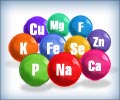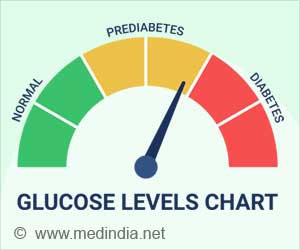The symptoms of magnesium are common to other deficiencies, the best course would be to eat enough of magnesium rich food. A daily supplement of magnesium could be added on a physician's advice.

As a start - magnesium supplements and magnesium therapy are applied at the earliest, for a minimum period of a month. By implementing these methods - long standing chronic low magnesium can be addressed.
Conditions Related to Low Magnesium:
1. Depression
2. Insomnia
3. Migraines
4. Premenstrual syndrome
5. Hypertension
6. Chronic Fatigue Symptoms
7. Muscle Spasms and Twitches
8. Anxiety, Restlessness and Hyperactivity
9. Constipation
10. Heart palpitations
11. Tightness in the chest
12. Osteoporosis
There are a few questions you can ask yourself as a self assessment:
• Do you drink too many colas or carbonated drinks on a regular basis? Dark sodas have phosphates and these bind with magnesium in the digestive tract – they are flushed out. Avoid having cola with meals as this will flush out all the magnesium you are eating.
• Is your stress level very high – or have you undergone a surgery? Severe stress depletes magnesium and deficit magnesium in turn causes stress.
• How much of alcohol do you have – more than 7 drinks a week? Alcohol decreases the efficiency of the digestive system and absorption of vitamin D – which are responsible for magnesium deficiency.
• Are you having too much of calcium – in milk or supplements? Excessive calcium with low magnesium is harmful for cells and muscles.
• Do you take medication like – birth control pills, diuretics, heart medication or estrogen replacement? Some drugs lower magnesium levels in the system as magnesium is flushed out.
• Do you face any of the neurological signs like anxiety, insomnia, or hyperactivity? Magnesium maintains electrolyte balance and deficiency can cause depression.
• Do you have spasms, cramps, tics and fibromyalgia? When magnesium in the body is not adequate, muscles contract all the while.
• Are you above 55years? After this age and as you grow older a person is vulnerable to loss of magnesium. The metabolic rates slow down as does the absorption of minerals – supplements are very important.
There are also a few random symptoms to indicate magnesium deficiency, such as when a normally relaxed and easy going person becomes short tempered and pessimistic. Some people develop a craving for salt or chocolate.
Magnesium is a key to good health; it should not be under estimated. Symptoms of magnesium deficiency can be confused with symptoms of other conditions. It would be wise to see a physician and undergo some tests before increasing magnesium levels. Vitamin B complex taken along with magnesium supplements controls the amount of mineral absorbed into cells.
Source-Medindia
 MEDINDIA
MEDINDIA




 Email
Email









